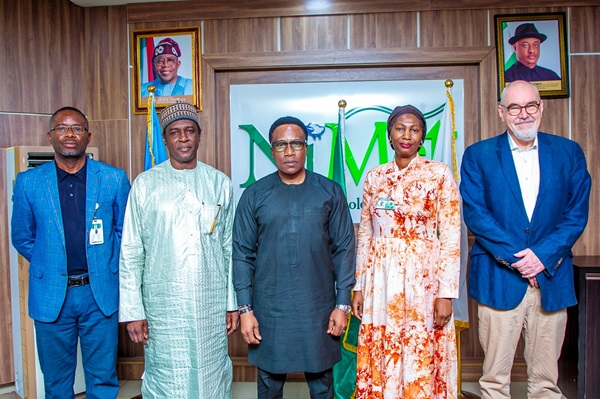
The Nigerian Meteorological Agency (NiMet) hosted the second roundtable meeting on the “Anticipatory Action Framework for Nigeria.” The meeting aimed to develop a unified approach and framework for anticipatory action in the country.
This meeting followed a similar one held in November 2024, convened by the Office of the Vice President of the Federal Republic of Nigeria, Kashim Shettima in collaboration with the United Nations Office for the Coordination of Humanitarian Affairs (UNOCHA).
In his welcome address, the director-general of NiMet, Prof. Charles Anosike highlighted the crucial role of President Bola Tinubu’s administration in addressing humanitarian emergencies caused by conflicts, natural disasters, extreme weather events and climate change. He emphasised the importance of inter-agency cooperation and partnership to achieve collective success for Nigeria.
Anosike stated, “At NiMet, we utilise competent personnel and advanced technological tools to provide early warning products and services through accurate, timely, and actionable weather forecasts and climate predictions. This allows us to anticipate severe weather events and enables individuals, authorities, and communities to prepare for anticipatory early actions such as evacuation, resource mobilisation and infrastructure reinforcement.”
He continued, “Our continuous weather observation, monitoring, and impact-based forecasting are critical for disaster preparedness and response, ensuring that the right quantity of human and material resources are mobilized to safeguard vulnerable communities.”
The head of the United Nations Office for the Coordination of Humanitarian Affairs (OCHA) in Nigeria, Trond Jensen remarked, “We live in a changing world, impacted by climate change and shifting demographics that make some individuals more vulnerable. Prevention is always better than cure. By improving our ability to anticipate, we cannot only mitigate climate-related incidents but also reduce suffering and save money, which is crucial.”
The director-general of the Nigeria Hydrological Services Agency (NIHSA), Arch. Umar Mohammed expressed hopes that the discussions would lead to actionable solutions and plans to address climate change impacts.
The special adviser on humanitarian and development partners to the President in the Office of the Vice President, Inna Audu noted that Vice President Kashim Shettima is dedicated to helping the people mitigate factors affecting them daily and in times of disaster.
Deputy director of planning and research at the Nigeria Emergency Management Agency (NEMA), Fred Anusim who represented NEMA’s director-general, Mrs. Zubaida Umar emphasised the importance of anticipatory action in disaster management policy.
Participants at the meeting included representatives from the Office of the Vice President, the Nigerian Meteorological Agency (NiMet), the Nigeria Hydrological Services Agency (NIHSA) and the National Emergency Management Agency (NEMA).

